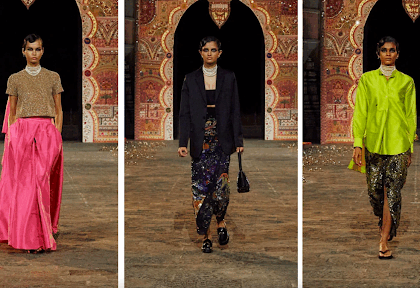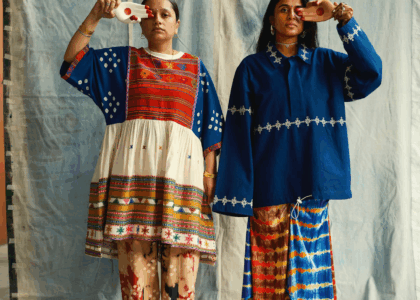Breaking into the luxury industry requires a combination of education, experience, and a deep understanding of brand storytelling. Whether you aspire to become a luxury brand manager or explore various luxury industry jobs, a strategic approach can help you navigate this competitive field. This guide outlines the essential steps to launch a successful career in luxury branding.
Step 1: Understand the luxury industry
Before diving into a career in luxury, it is crucial to understand what sets this industry apart. Luxury brands focus on exclusivity, heritage, craftsmanship, and personalized customer experiences. Unlike mass-market brands, luxury businesses emphasize quality over quantity, creating unique and prestigious products and services.
The luxury industry spans multiple sectors, including fashion, beauty, hospitality, fine jewelry, automobiles, and travel. Each segment requires a specific skill set, so understanding your area of interest will help tailor your career path. Research the top brands, market trends, and customer preferences to gain insights into how luxury businesses operate.

Step 2: Pursue a specialized education
A strong educational background in luxury brand management, marketing, or retail can give you an edge. Luxury brands seek professionals who not only understand business principles but also appreciate brand heritage, craftsmanship, and consumer psychology.
Many institutions worldwide offer specialized programs focusing on luxury management. The School of Luxury Retail (TSOLR), for example, provides courses such as the B.Sc. in Luxury Brand and Retail Management, which covers essential aspects like consumer behavior, digital marketing, and supply chain management in the luxury space.
Additionally, enrolling in short courses, certifications, and workshops on luxury marketing, customer experience, and sustainability can further enhance your expertise. Continuous learning is key to keeping up with industry developments and staying competitive in the job market.
Step 3: Gain relevant experience
Hands-on experience is invaluable in the luxury sector. Many luxury brands prefer candidates with prior experience in retail, hospitality, or brand management. Internships and entry-level roles provide exposure to the inner workings of the industry and help build a solid foundation.
To gain practical knowledge, look for internships with luxury brands, high-end retailers, or boutique agencies specializing in luxury marketing. Many global luxury houses, such as LVMH, Chanel, and Richemont, offer structured internship programs that allow aspiring professionals to learn directly from industry leaders.
Additionally, part-time jobs in luxury retail, hospitality, or event management can help develop essential customer service and sales skills. Understanding how to cater to high-net-worth individuals (HNWIs) and deliver top-tier experiences is crucial in luxury careers.
Step 4: Build a strong network
Networking is essential in the luxury industry, where relationships and personal connections play a significant role in career advancement. Many job opportunities are not publicly advertised and are instead filled through industry referrals.
Attend industry events, fashion weeks, and luxury brand masterclasses to connect with professionals and gain insights from industry leaders. Engaging with professionals on platforms like LinkedIn can also help you expand your network and stay informed about job openings.
Joining luxury business associations, alumni networks, and professional groups can further open doors to career opportunities. Consider reaching out to mentors who can provide guidance and help navigate the complexities of breaking into the luxury industry.
Step 5: Develop key skills
To succeed in the luxury industry, aspiring luxury brand managers and professionals must develop a diverse skill set that goes beyond traditional marketing or retail knowledge. Key skills include:
- Luxury customer experience
Luxury consumers expect a high level of service and personalization. Professionals must learn how to engage with HNWIs, anticipate their needs, and exceed their expectations. Excellent communication skills and cultural awareness are crucial in delivering exceptional service.
2.. Digital & Social Media Marketing
The rise of e-commerce and social media has transformed the luxury industry. Professionals must be proficient in digital marketing strategies, influencer collaborations, and content creation to drive brand engagement and loyalty.
- Sales & negotiation skills
Luxury sales require a personalized approach. Understanding the art of consultative selling, handling objections, and building long-term client relationships is crucial in high-end retail and brand management.
- Sustainability & ethical practices
With increasing consumer awareness around sustainability, luxury brands are shifting towards ethical sourcing and sustainable practices. Knowledge of corporate social responsibility (CSR) and environmental, social, and governance (ESG) factors can be a valuable asset.
Step 6: Apply for luxury industry jobs
Once you have built a strong foundation, start applying for roles in luxury retail, marketing, merchandising, and consulting. Tailor your resume and cover letter to highlight your luxury-related skills and experiences.
Roles in the luxury industry vary widely, including:
- Luxury Retail Associate – A starting point for many, providing hands-on experience in customer service and sales.
- Luxury Brand Manager – Oversees branding strategies, product positioning, and marketing campaigns.
- Visual Merchandiser – Designs in-store and window displays to enhance brand aesthetics and customer experience.
- PR & Communications Specialist – Manages brand image, media relations, and influencer partnerships.
- Luxury Digital Marketer – Focuses on e-commerce, social media campaigns, and online customer engagement.
- Buyer or Merchandiser – Selects luxury products for retail stores based on market trends and customer demand.
Luxury brands value candidates with a strong understanding of their brand identity, so demonstrating passion and knowledge about the company you’re applying to is essential.
Step 7: Keep learning and evolving
The luxury industry is constantly evolving, driven by emerging consumer trends, digital innovations, and shifts in global markets. Staying updated with industry reports, attending webinars, and engaging in continued education can help you stay ahead.
Additionally, learning new languages can be advantageous, as luxury brands often cater to international clientele. French, Italian, Mandarin, and Arabic are particularly useful in the luxury sector.

Starting a career in the luxury industry requires dedication, passion, and a strategic approach. By following this step-by-step guide, aspiring luxury professionals can position themselves for success in luxury branding and management. Whether through education, experience, or networking, taking the right steps will help you secure a rewarding role in the world of luxury.
Breaking into the luxury industry is not just about having the right qualifications; it’s about cultivating an appreciation for the finer details, understanding customer psychology, and continuously refining your skills. With the right approach, you can carve out a successful career in one of the most prestigious and rewarding industries in the world.





